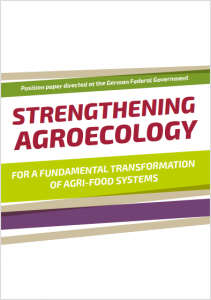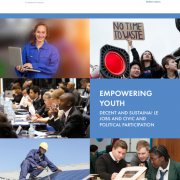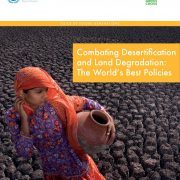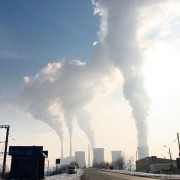Position paper: Strengthening agroecology for a fundamental Transformation of agri-food systems
Summary
The negative effects of industrial agriculture have long been clear, and agroecology offers a multitude of solutions for the fundamental transformation of the agri-food system. The position paper presents these solutions and is supported by the World Future Council and many other important actors of the agroecology debate.
There is movement in the international debate on agriculture. More and more people – activists, scientists, members of
organizations and some governments – have come to realize that “carry on as usual” is not an option. The IAASTD report (International Assessment of Agricultural Knowledge, Science and Technology for Development) recognized this as much back in 2009. The message has now gotten through: the negative effects of industrial agriculture have long been clear; they include water shortages, species extinction, high greenhouse-gas emissions, soil degradation, and land grabbing. They cause social, economic and ecological damage that harms the
livelihoods of peasants1 and the ability of ecosystems to adjust to the already noticeable effects of the climate crisis. The business model of the international pesticide and seed companies is based on the Green Revolution concept of raising yields through the massive use of synthetic fertilizers and pesticides. But this system is coming under enormous pressure to justify itself. Just a handful of big multinationals control markets all the way from the field to the supermarket. The takeover of Monsanto by Bayer is just one example of
this power. And the power imbalances are increasing between huge corporations on one hand and peasants and workers on the other. Social inequality worldwide is on the rise. Small farms find themselves squeezed out of the market; the human rights of peasants are systematically ignored, especially in the global South; farmworkers toil for a pittance and are exposed to toxic pesticides. According to a United Nations report, 200,000 people die each year from acute pesticide poisoning; 99% of these deaths occur in developing countries.










